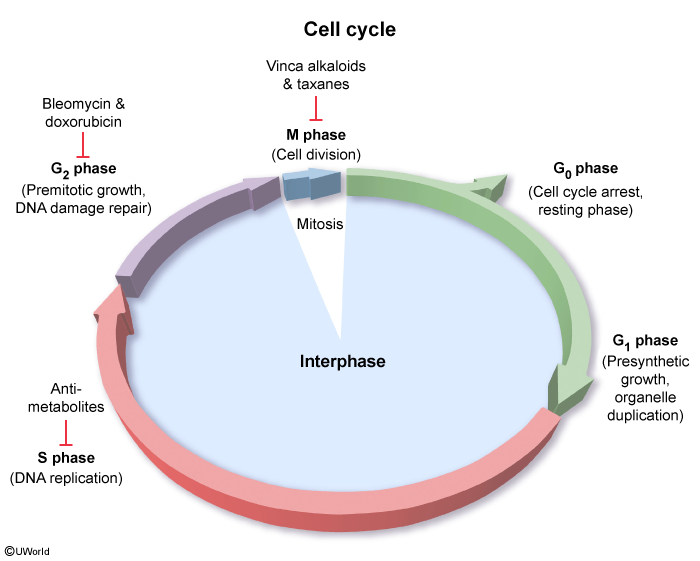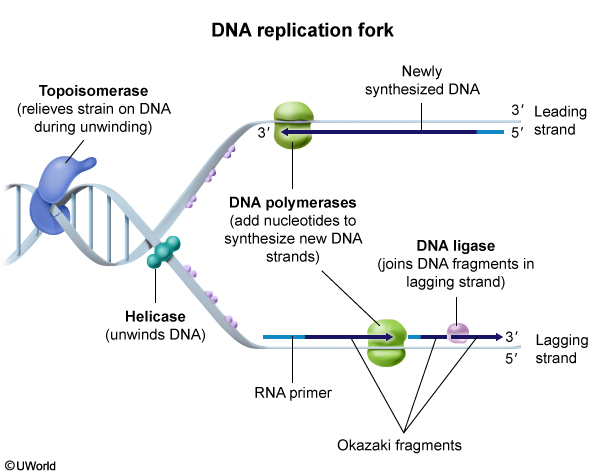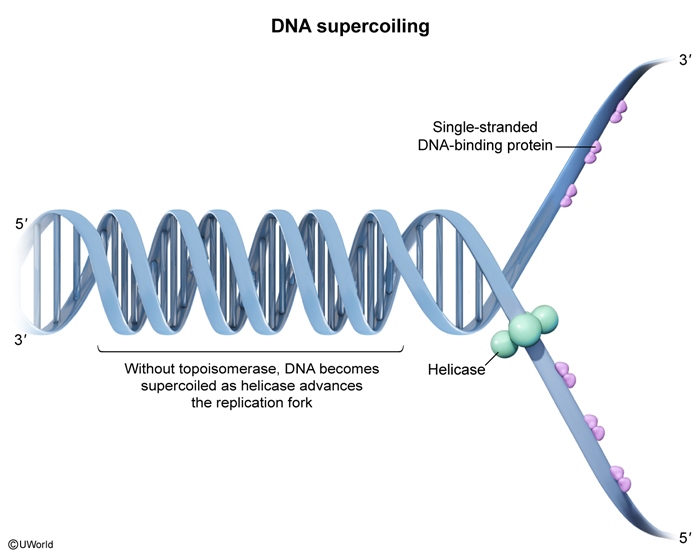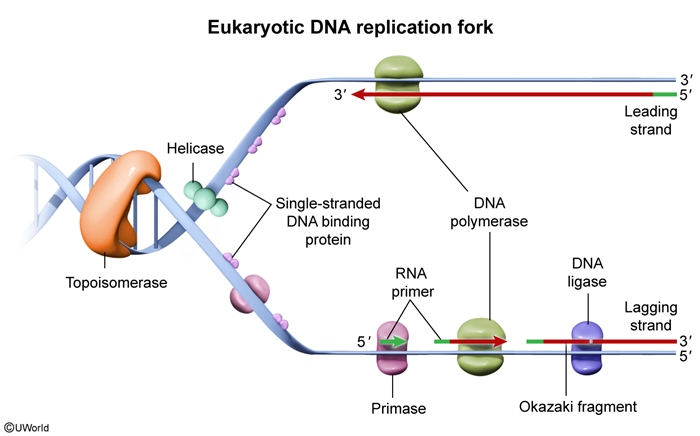Topoisomerase Inhibitors
Article Sections
Introduction
Topoisomerase inhibitors are a class of chemotherapeutic agents that inhibit topoisomerase enzymes. Normally, topoisomerases prevent supercoiling during replication, repair, and transcription by briefly cutting and then resealing DNA. Topoisomerase inhibitors prevent these enzymes from resealing the DNA after cutting, which leads to DNA damage and cell death.
Overview of chemotherapy
Cancer is a heterogeneous disease characterized by the uncontrolled growth of abnormal cells that have acquired the ability to evade the body's normal control mechanisms (eg, resisting apoptosis, escaping immune surveillance).
Various strategies have been developed to treat cancer, including different combinations of surgery, chemotherapy, and radiation therapy. Chemotherapy involves the use of certain drugs (ie, chemical agents) to prevent the further growth of or to induce death in these proliferating cells. Chemotherapeutic agents achieve these goals through different mechanisms that target various cellular components, including nucleic acids (eg, damaging DNA), cellular enzymes (eg, inhibiting enzymes required to synthesize essential cell proteins), or cellular structural components (eg, preventing the assembly of microtubules).
Continue Learning with UWorld
Get the full Topoisomerase Inhibitors article plus rich visuals, real-world cases, and in-depth insights from medical experts, all available through the UWorld Medical Library.
Unlock Full AccessFigures



